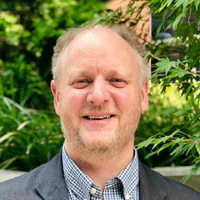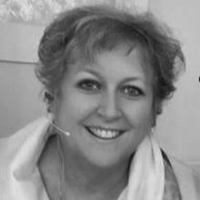Leadership is set and a timeline has been established
by Mike Ferguson | Presbyterian News Service

Photo by Andrew Neel via Unsplash
LOUISVILLE — In a Sunday meeting that was a little hard for non-commissioners to follow because workgroup reports were kept private until the conclusion of the public portion of the Unification Commission’s online gathering, commissioners received a report on initial steps of unifying communications ministries of the Office of the General Assembly and Presbyterian Mission Agency.
That joining, announced last month after executive leadership requested unifying the communications functions of the PMA, OGA and Administrative Services Group, has seen its leadership team assembled with roles and responsibilities clarified.
The Rev Bronwen Boswell, Acting Stated Clerk of the General Assembly of the Presbyterian Church (U.S.A.), will provide executive leadership and sponsorship for the team. According to a report by Kathy Lueckert, president of the Presbyterian Church (U.S.A.), A Corporation, Boswell’s key role is to champion the project to peer, internal (people and work areas) and external stakeholders “and make sure we have the resources needed to make this happen in a timely way.”
Dr. Corey Schlosser-Hall, the PMA’s deputy executive director of Visioning, Rebuilding an Innovation, will provide project leadership and management. His key role is to lead the overall process and project of moving from two ministries to one new ministry and to help internal and external stakeholders be informed and involved as needed.
“Current leadership of the two communications ministries [the Rev. DeEtte Decker in the PMA and Rick Jones in the OGA] are also involved in leading these efforts especially related to the practical, relational and emotional leadership of changes that will come with unifying two ministries into one new ministry,” Lueckert said in her report.
The effort is more of a startup than a mashup, according to Lueckert. “Because in this unifying effort we wish to develop a new ministry that will best serve the church and world of today and tomorrow, we are treating this more like a startup than a simple mashup (combining) of two teams,” she wrote. “We will be articulating a fresh vision and focus along with making solid progress on key priorities.”
All staff of both ministries will have input into the startup effort, she said. On Nov. 17, they’ll share a process map and seek feedback. On Dec. 11, both groups will identify the strengths and assets they bring to the venture, along with “identifying pain points in need of healing/repair.”
By Feb. 5, 2024, an emerging vision and next steps for the new ministry will be established. “We are targeting the week of April 19 for potential unifying,” Lueckert wrote. “That target may shift as the work progresses.”
Key unifying principles
The commission announced five key unifying principles “guiding our work and framing the work of the unified new agency and the new governance body.” Those principles “lead us to be” relational, streamlined, nimble, justice focused, and vision driven, the commission announced.
Finance Workgroup
The Rev. Scott Lumsden, co-executive presbyter of Seattle Presbytery, reported the workgroup has met twice since last month’s in-person meeting in St. Louis — once to finalize next steps for developing the budget process for the 2025 fiscal year and once to meet with the executive team — which includes Boswell, Lueckert and the Rev. Dr. Diane Givens Moffett, the PMA’s president and executive director — to talk about budget questions. “We’re pleased to share that the meeting with the executive team went well,” Lumsden said. “Because of the volume and urgency of that work, we could make that a monthly Zoom meeting.”

Rev. Scott Lumsden
While “we continue to learn quite a bit about the financial and organizational operations” of PMA, OGA and the A Corp, the “deeper change that will be needed to ensure unification’s success is a complete restructure/rethinking of the ministry … that will take many years,” according to the workgroup’s report. “Though that’s an obvious statement, we’re beginning to think of what structures and understandings and leadership needs to be in place to continue what we are tasked with starting.”
The commission’s co-chair, the Rev. Dr. Felipe N. Martínez, pastor of First Presbyterian Church in Columbus, Indiana, said it is the sensitive nature of the reports of workgroups including Finance that led to originally making them available only to commissioners and staff that serve the commission, “specifically because of conversations about staff positions,” he said.

The Rev. Dr. Felipe Martínez
Martínez promised to make the reports public, which occurred as the commission entered into closed session to discuss personnel and property-related matters.
Commissioners emerged about an hour later and Martínez announced they’d taken no action during the closed session.
Consultations Workgroup
The Rev. Dr. Dee Cooper, lead presbyter for the Presbytery of Denver, said just two consultations remain. She expressed thanks to Lueckert for lining up and following through with numerous consultations.

The Rev. Dr. Dee Cooper
During the workgroup’s most recent meeting, “discussions moved to the awareness and process of molding two cultures together,” according to the workgroup’s report. “This became a theme echoed by each of the other workgroups. As we progress into shaping, we have to understand the cultures and then understand or support how to bring them together into one new culture.”
Governance Workgroup
The Rev. Deb Avery, the pastor of United Presbyterian Church in Peoria, Illinois, reported the workgroup has been focusing on the role of NewGov, the name the workgroup has given the body that will oversee the combined agencies.

The Rev. Deb Avery
The workgroup sees NewGov as a leadership body. “While responsible for receiving, interpreting, and providing strategy for implementation of [General Assembly] directives, NewGov is also responsible for responsible vision-setting that goes beyond reacting to what GA provides,” the report states. The workgroup envisions NewGov as “a crucible of hope that inspires and motivates the church.”
For next steps, the workgroup mentioned the need to determine the role of executive leadership of NewGov and for the new agency, which the workgroup calls NewAg — including the role of the next Stated Clerk, who will be elected by the 226th General Assembly next year in Salt Lake City, Utah. Also to be determined is whether NewGov will be a board, commission, council or committee.
“How does this agency relate to others, and who is the voice for that?” Avery asked. How will NewGov work with ecumenical partners, caucuses, parachurch entities and others, Avery asked. “Those are things that are hanging around for us,” Avery said. “What are the powers that NewGov should have, and how is that power managed?”
The Unification Commission meets next at 3 p.m. Eastern Time on Saturday, Dec. 16. Learn more about the work of the commission here.
![]() You may freely reuse and distribute this article in its entirety for non-commercial purposes in any medium. Please include author attribution, photography credits, and a link to the original article. This work is licensed under a Creative Commons Attribution-NonCommercial-NoDeratives 4.0 International License.
You may freely reuse and distribute this article in its entirety for non-commercial purposes in any medium. Please include author attribution, photography credits, and a link to the original article. This work is licensed under a Creative Commons Attribution-NonCommercial-NoDeratives 4.0 International License.